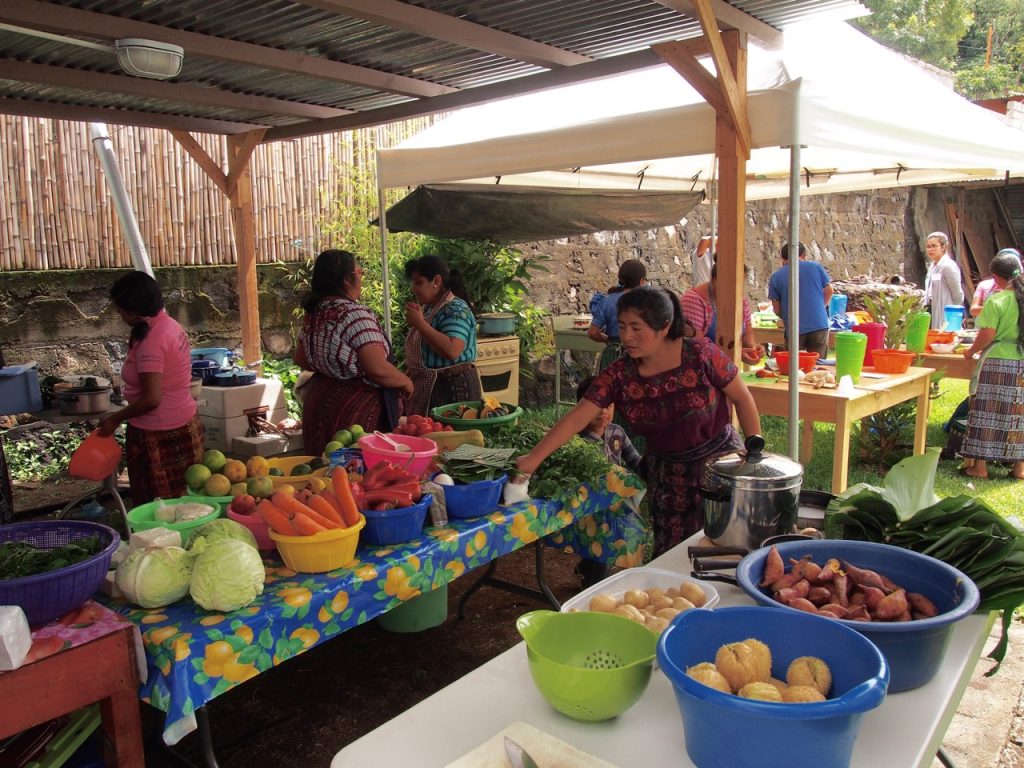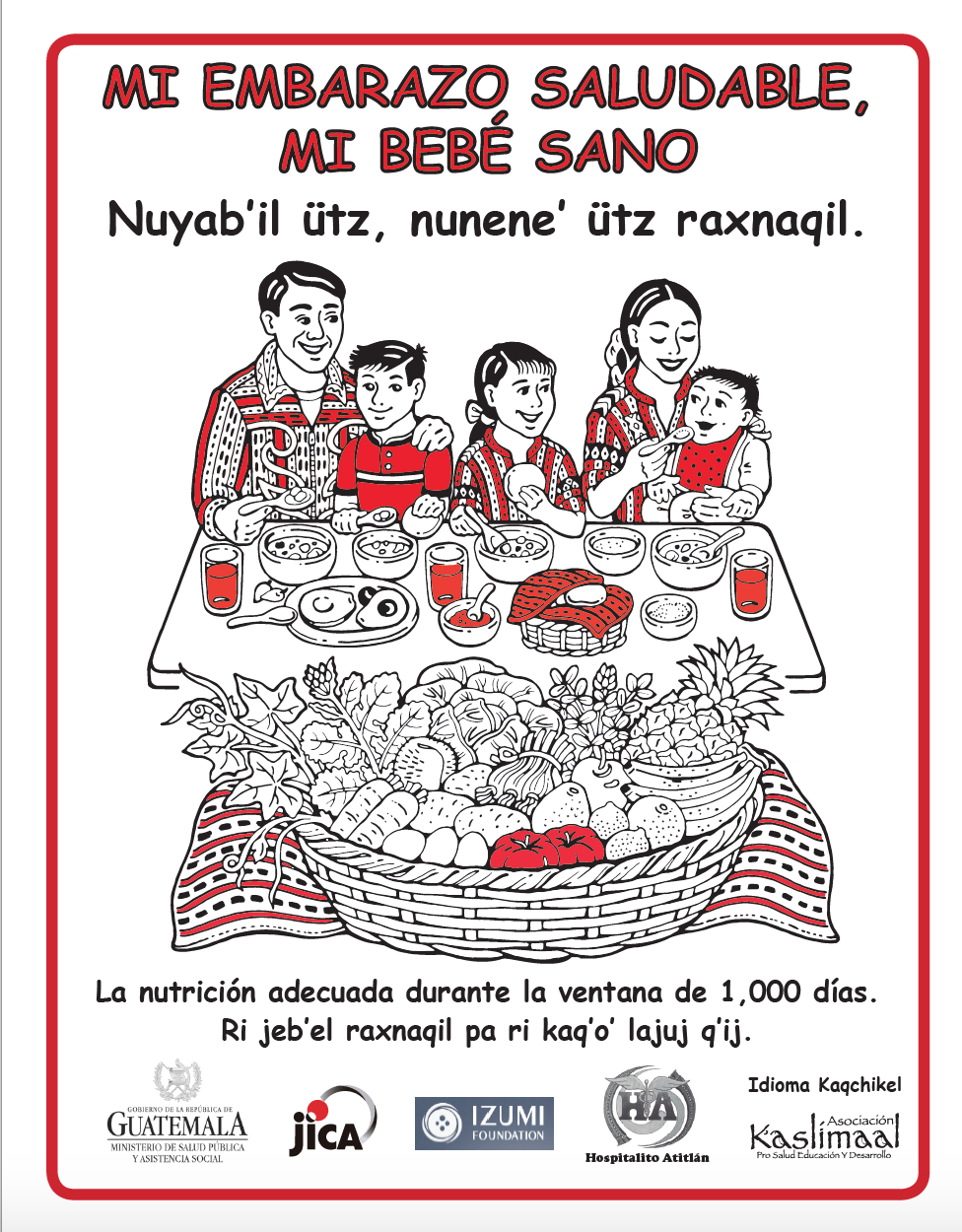Guatemala has one of the world’s highest rates of child malnutrition, with nearly half of children under five suffering from chronic malnutrition, according to the United Nations Children’s Fund (UNICEF). In some rural communities, that number is reportedly as high as 80 percent.

IZUMI Foundation Extends Support for Nutrition Education Project for Three Years Starting July 1, 2023
Since 2017, Hospitalito Atitlán has been partnering with the IZUMI Foundation to address malnutrition of rural residents in the department of Sololá. The program is possible thanks to partnerships with government agencies such as the Ministries of Health and Agriculture, as well as the Secretariat for Food Security.
The project has seen many successes, but malnutrition and food scarcities have been exacerbated by the COVID pandemic and climate change.
History
The program has focused on the “Window of 1000 Days”, the time spanning roughly between conception and one’s second birthday – is a unique period of opportunity when the foundations of optimum health, growth, and neurodevelopment across the lifespan are established.
IZUMI Foundation has funded two project cycles over five years, resulting in significant accomplishments:
- Training 736 health workers to be better equipped to offer preventive nutrition education to mothers and families during home visits and to identify malnutrition.
- Completing 332 cooking demonstrations for health care workers, providing them with recipes to share with clients.
- Conducting cooking classes for 2,561 mothers of children identified with malnutrition, teaching them how to make healthy meals from inexpensive local ingredients.
- Creating and distributing — in the three indigenous languages of Sololá — 15,520 copies of an illustrated booklet covering proper nutrition for pregnant women and children under the age of five.
- Airing radio nutrition education spots in the three indigenous languages — reaching 200,000 listeners.
Expanding Nutrition Education and Intervention in Rural Sololá
(July 2023 – June 2026)
The new initiative will expand on the previous two phases of program. Some elements will include:
- Reinforcing health worker knowledge of proper nutrition guidelines:
- Providing a refresher course for 300 Ministry of Health workers emphasizing personalize nutritional counseling.
- Expanding nutrition training to 200 health workers in previously uncovered Sololá municipalities.
- Training Ministry of Agriculture health promoters to deliver supplements to 300 women of childbearing age (15-25 years) and educate them in their use.
- Designing, publishing, and distributing culturally sensitive pregnancy education materials to women of childbearing age.
- Preventing serious pregnancy complications by training 100 traditional birth attendants about the risks of gestational diabetes and elevated blood pressure.
- Continuing to provide access to recipes by presenting 100 cooking demonstrations to 1000 local women, as well as teaching them how to read food labels.
- Creating and broadcasting 12 radio spots emphasizing the importance of nutrition before and during pregnancy in three local indigenous languages.
- Developing a response strategy for nutritional emergencies including:
- Providing supplements to 300 families with malnourished children.
- Offering pediatric consultations, lab tests, medications, and micronutrients to malnourished and high-risk children.
- Establishing gardens for 100 families in the four towns not currently covered in the project.
- Piloting a new prevention strategy for pregnant women in rural areas — creating two “clubs” in each language area that offer prenatal checkups, and nutritional and health education for women and their children.




Maternidad Segura – Safe Pregnancy



